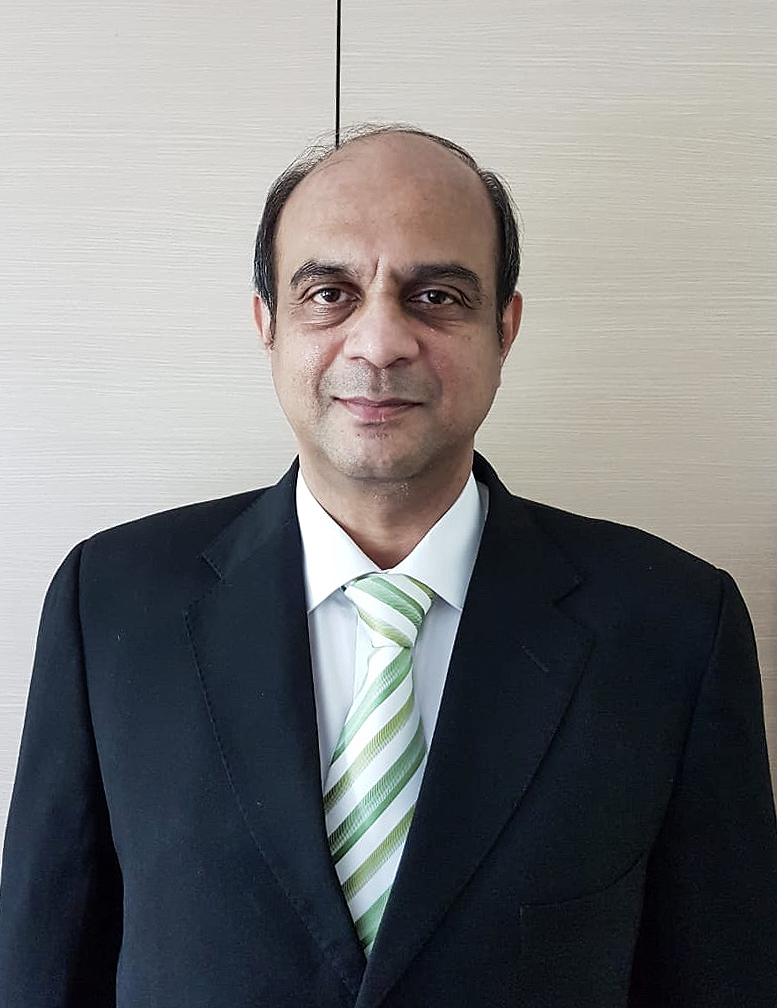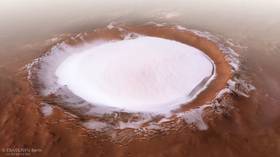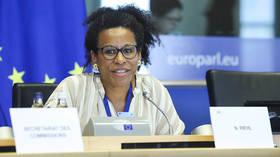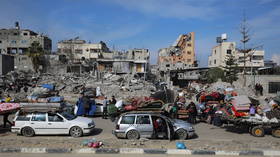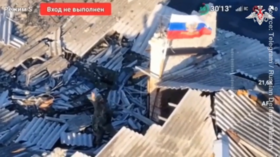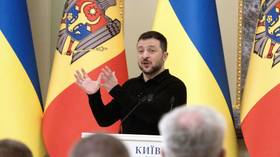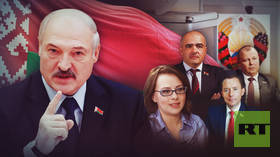Ticket to the modern Klondike: How New Delhi could get the keys to the Russian Arctic
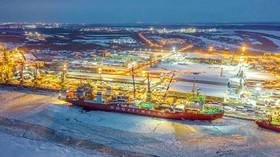
The Arctic is fast emerging as the 21st century Klondike, with the region’s states in a race to tap its resources — but with support from Russia, India could be the first non-Arctic state to get a slice of the pie.
The Arctic is one of the last frontiers of natural resource discovery on Earth, and underneath the tundra and ice are vast amounts of undiscovered oil, natural gas, and minerals.
Currently, the area produces about one tenth of the world's oil and a quarter of its natural gas. The Russian Arctic, which is the most developed sector of the region, is the source for about 80 percent of this oil and virtually all of the natural gas. Other producers include Canada, US, and Norway.
In addition to energy deposits, the Arctic, particularly the Russian Arctic, also holds abundant deposits of nickel, copper, coal, gold, uranium, tungsten, and diamonds. However, commercial mining for most minerals is yet to commence as these are not easy to get at. Opening a mine in the northernmost part of our planet is not cheap; short shipping seasons, melting permafrost, summer swamps and polar bears, not to mention minus 50 degree temperatures are just some of the challenges that make the Arctic difficult in terms of economic viability.
Also on rt.com Balancing act: How India is modernizing its military by buying latest tech from BOTH Russia & the WestBut, this could change in the near future. The Intergovernmental Panel on Climate Change predicts that, as a result of global warming, Arctic temperatures are set to rise by three, four or even five degrees. This could completely transform the territory within the 21st century — and with that in mind, the race for Arctic resources between the United States, Norway, Russia, Denmark, and Canada, has already begun. But there are also other players in the game, notably India and China — both major non-Arctic states who were granted observer status in the exclusive Arctic Council in 2013 — and are eager to grab a share of the “Arctic Pie.”
Indeed, India will soon become the first non-Arctic state extracting resources in the region. Speaking at a conference in New Delhi in January, Russian Foreign Minister Sergey Lavroy announced that Russia and India were working together on geological exploration. “We welcome India joining in,” he said. “This is the country with which we have developed good partnership, strategic relations and all of this makes it possible to speak with confidence about the prospects of Russian-Indian cooperation in the Arctic.”
Also on rt.com Rosneft inks deal with India’s top refiner on up to 2 MILLION tons of crude suppliesIndia-Russia Cooperation
The nature of India’s wide-ranging strategic relationship with Russia — dating back to the Soviet era — has evolved over the years, to include defense, civil nuclear cooperation, science and technology, space and energy. The two countries are now committed to expanding bilateral trade, targeting $30 billion of annual trade by 2025, from the current $11 billion, which is largely on account of arms sales to India.
An expansion in energy cooperation will increase trade but could also be mutually beneficial in other ways, for both countries. According to Kanwal Sibal, former Indian Foreign Secretary, for India a new energy partnership with Russia is crucial since it can’t “put all its eggs in one basket” by depending only on the Middle East or the United States for its energy needs. Similarly, he added that for Russia, diversifying its energy trade away from China, provides greater stability to tide over trade disruptions such as the recent one involving the spread of the Corona or Covid-19 virus.
India is also one of the few non-Arctic countries to have a permanent research station in the region. The station, named Himadri, was set up at Spitsbergen, Svalbard, Norway in 2008, about 1,200 kilometres from the North Pole. It is currently engaged in atmospheric, marine, geological and climatic studies. According to Professor Suba Chandran, an expert on the subject, “Indian monsoons are directly linked to climate change which in turn is linked to the Arctic.” And since the monsoon, he noted, affects the national GDP, India maintains a close watch on the weather patterns in the Arctic.
Also on rt.com Star City adventure: Take a sneak peek into India’s first space crew training in RussiaStrategic Plans
Indian Prime Minister Narendra Modi visited Vladivostok in Russia’s Far East in September 2019 — the first visit to that part of Russia by an Indian PM. The trip resulted in the drawing up of a five-year roadmap for bilateral cooperation in the oil and gas sector. Modi also signed a Memorandum of Intent for the opening of a maritime route between Vladivostok and Chennai on India’s eastern seaboard, located over 10,000 kilometres away. This sea route will enable cargo transfers between the two cities in 24 days compared to the current 40 days.
India’s Minister for oil and gas Dharmendra Pradhan later visited Russia’s Far East, accompanied by the country’s top business leaders, including Coal India (the world’s largest coal producing company). Pradhan said India needs about 70 million tons of high-quality coal for its aluminum and steel industry and that “negotiations must end with a successful project decision on the development of metallurgic coal, that is to be exported from Russia.”
The Taymyr coal basin in the Arctic territory is estimated to have as much as 225 billion tons of high-quality coal — and Russian coal giants, Vostok Coal and Severnaya Zvezda, who own production licenses in the area, are gearing up to send millions of tons from a new terminal located near Dikson on the Kara Sea coast.
Also on rt.com India could become first non‑Arctic state to develop Russia's Arctic resourcesIndia has also confirmed its participation in a major Arctic oil project to be developed in Russia’s remote Taymyr Peninsula by Russian national oil company Rosneft. The project includes the development of at least three fields in the Vankor area and the construction of a 600km pipeline which could export 25 million tons of oil per year via the Northern Sea Route.
Liquefied natural gas (LNG) is another domain where India has indicated interest in cooperating with Russia. Indian firms H-Energy and Petronet LNG signed agreements to buy LNG from Russian gas producer Novatek on long-term contracts last September. An agreement signed also envisages joint investment in future LNG terminals of the two companies, as well as establishing a joint venture to sell LNG and natural gas to customers in India, Bangladesh and other countries. Reportedly, India’s state owned company GAIL is also negotiating a minority stake in a LNG project led by Russian gas producer Novatek, though details are yet to be made public.
Looking at the latest developments, it’s clear that India’s involvement in the Arctic region will continue to grow in the coming months, adding a new dimension to the extant Indo-Russia strategic partnership — and enabling energy-hungry India to tap into a new source.
Like this story? Share it with a friend!
The statements, views and opinions expressed in this column are solely those of the author and do not necessarily represent those of RT.
